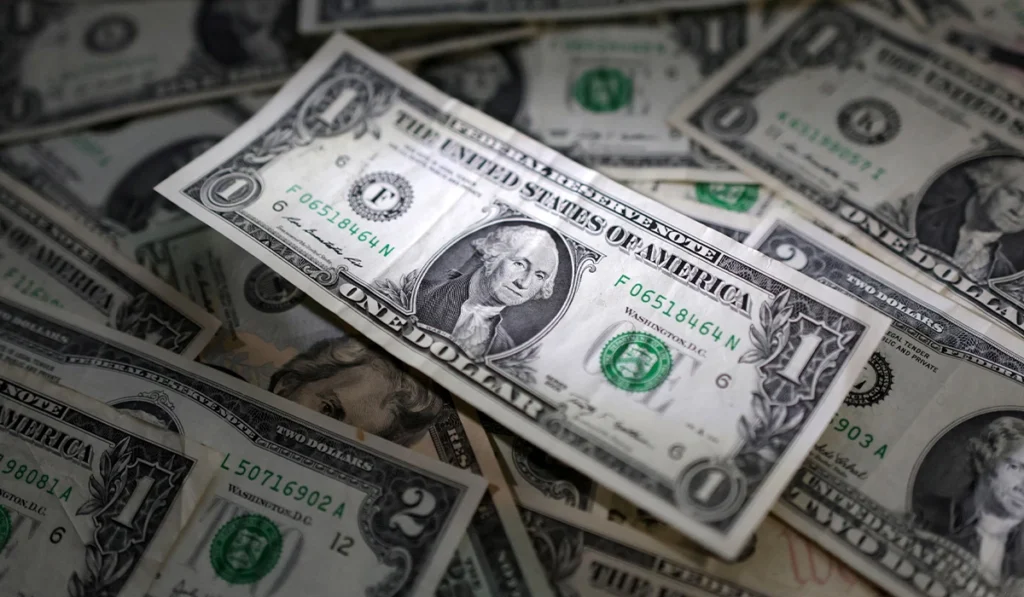- Web
- Feb 05, 2026
US inflation up, Turkiye goes for rate cut, EU holds

WASHINGTON: US consumer inflation rose last month to its highest level since January, government data showed Thursday, although analysts believe that this is unlikely to deter the central bank from an interest rate cut next week.
And Turkiye, the central bank lowered the key interest rate by 2.5 percentage points in a cut that exceeded expectations as inflation continued to ease.
But it isn’t with the Eurozone, as the European Central Bank (ECB) on Thursday held interest rates steady again with inflation under control and trade tensions having eased, even as France’s political crisis presents policymakers with a fresh challenge.
TRUMP TARIFSF AND INFLATION
The consumer price index (CPI) picked up to 2.9 per cent in August, accelerating from 2.7 per cent on a year-on-year basis in July, said the Labor Department, as President Donald Trump’s tariffs filter through the world’s biggest economy.
The figure was in line with analysts’ expectations, and economists are trying to gauge if the Trump tariffs duties will bring about a one-off price increase or lead to persistently higher costs.
On a month-on-month basis, CPI rose 0.4 per cent in August, the report said, also picking up from 0.2 per cent in July.
And a measure of underlying inflation, stripping away the volatile food and energy components, was up by 3.1 per cent from a year ago.
All eyes are on inflation numbers this week, given that these typically have some bearing on the Federal Reserve’s interest rate decisions.
Meanwhile, the Fed is due to hold its next policy meeting from September 16-17, and traders widely anticipate that it will lower the benchmark lending rate by 25 basis points.
This would mark its first rate cut since December –- and comes after months of pressure from Trump –- with policymakers keeping rates unchanged this year as they monitored the effects of tariffs on inflation.
With employment weakening, some experts say officials are pivoting more towards concerns about a labor market slowdown.
The Fed might be inclined to reduce rates to boost the economy as a result, as opposed to keeping them at a higher level when seeking to contain inflation.
The August CPI boost came as food, energy and shelter costs all increased.
TURKISH INFLATION
In April, the Turkish central bank had raised its key interest rate to 46 per cent after protests over the jailing of Ekrem Imamoglu — Istanbul’s opposition mayor. But in July, it opted for three-percentage point rate cut.
And on Thursday, its monetary policy committee “decided to reduce the one-week repo auction rate from 43 per cent to 40.5 per cent.
The move came as annual inflation eased further to 32.95 per cent in August against 33.52 per cent in the previous month.
“While growth exceeded projections in the second quarter, final domestic demand remained weak. Recent data suggest that demand conditions remain disinflationary,” the central bank noted.
Moreover, it also warned that food and service prices were “keeping upward pressure on inflation”.
“Inflation expectations, pricing behaviour, and global developments continue to pose risks to the disinflation process,” it said, pledging to maintain a tight monetary policy stance “until price stability is achieved.”
EUROZONE AFFAIRS
The central bank for the 20 countries that use the euro left its key deposit rate at two per cent, as widely expected, with inflation hovering close to its two-per cent target.
Announcing its decision, the ECB noted that inflation was currently around target, and “the governing council’s assessment of the inflation outlook is broadly unchanged”.
As expected, the bank offered no indication of its next move, saying that it was “not pre-committing to a particular rate path” and would “follow a data-dependent and meeting-by-meeting approach”.
In updated projections, the ECB increased its forecast for eurozone growth in 2025 to 1.2 per cent but lowered it slightly for 2026 to 1.0 per cent.
It also hiked its inflation forecasts slightly for both this year and next.
Meanwhile, the escalating crisis in France, the eurozone’s second-biggest economy, is a major worry for the region.
Francois Bayrou quit as prime minister on Monday following his defeat in a confidence vote over an austerity budget, and was replaced just 24 hours later by Sebastien Lecornu — France’s third prime minister within a year.
The turmoil sent France’s borrowing costs, a measure of investor confidence, surging above those of traditional eurozone debt laggard Italy.





